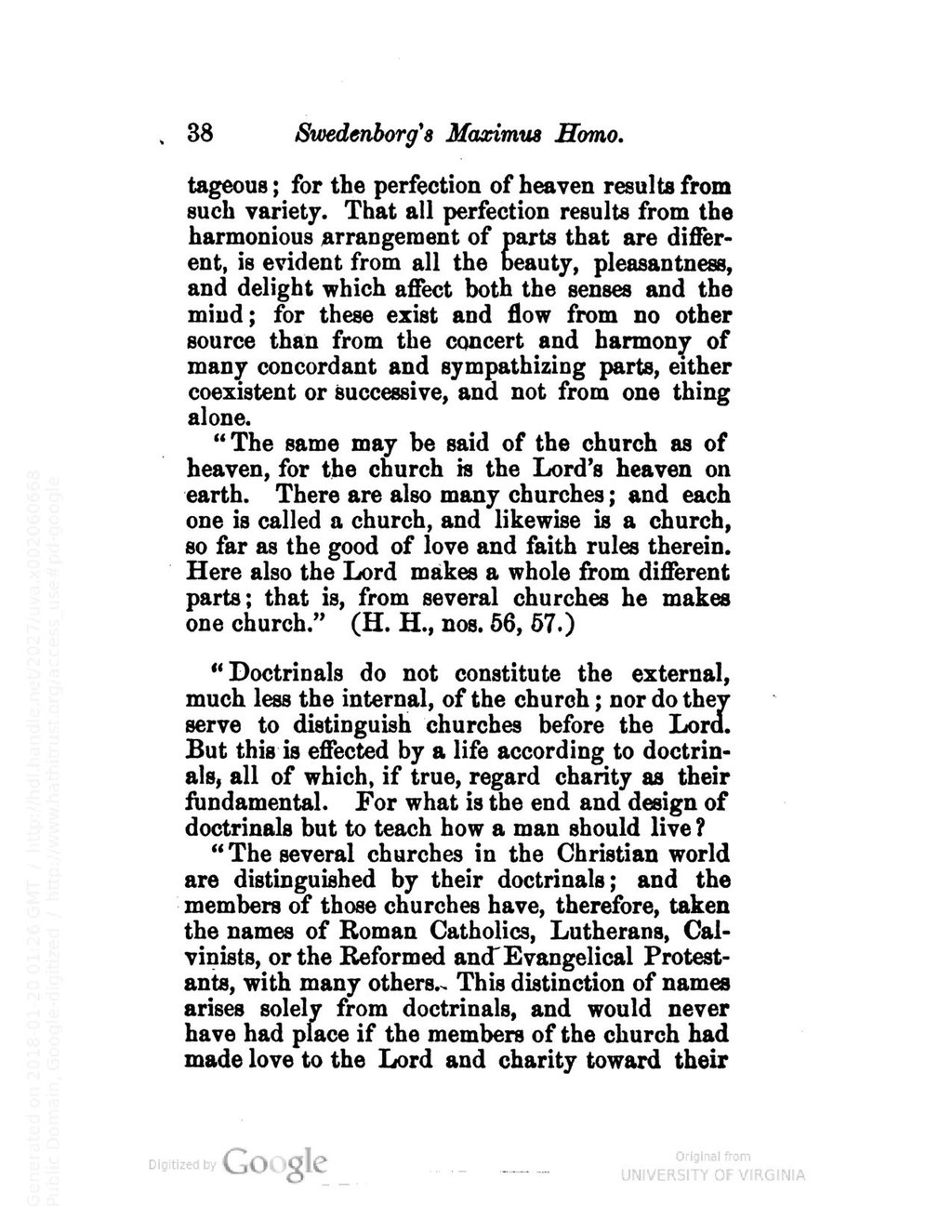tageous; for the perfection of heaven results from such variety. That all perfection results from the harmonious arrangement of parts that are different, is evident from all the beauty, pleasantness, and delight which affect both the senses and the mind; for these exist and flow from no other source than from the concert and harmony of many concordant and sympathizing parts, either coexistent or successive, and not from one thing alone.
"The same may be said of the church as of heaven, for the church is the Lord's heaven on earth. There are also many churches; and each one is called a church, and likewise is a church so far as the good of love and faith rules therein. Here also the Lord makes a whole from different parts; that is, from several churches he makes one church." (H. H., nos. 56, 57.)
"Doctrinals do not constitute the external, much less the internal, of the church; nor do they serve to distinguish churches before the Lord. But this is effected by a life according to doctrinals, all of which, if true, regard charity as their fundamental. For what is the end and design of doctrinals but to teach how a man should live?
"The several churches in the Christian world are distinguished by their doctrinals; and the members of those churches have, therefore, taken the names of Roman Catholics, Lutherans, Calvinists, or the Reformed and Evangelical Protestants, with many others. This distinction of names arises solely from doctrinals, and would never have had place if the members of the church had made love to the Lord and charity toward their
